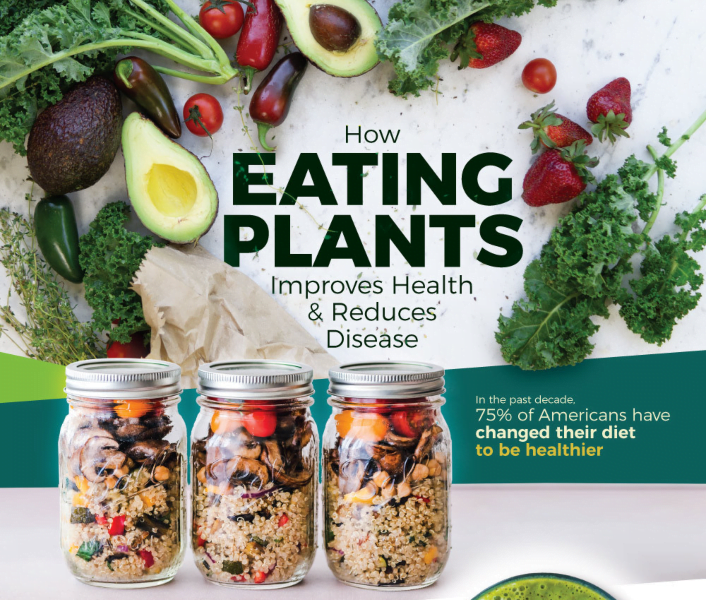Americans are striving for better health and dieting is proving to be a highly effective approach. As 1 in 4 seek health benefits from their food, 75% of Americans have changed their diet to be healthier within the last decade. According to one study, a plant-based diet may produce better results after 1 year than any other diet alone- nearly 1 in 3 eat plant-based protein daily, and 43 Americans routinely opt for plant-based alternatives. A whole-food, plant-based diet may reduce inflammation factors associated with cancer and heart disease, as well as lower the risk for other diseases. Yet, only 5% of Americans follow an entirely plant-based diet. What exactly is a plant-based diet?
Engaging in a whole-food, plant-based diet means maximizing fruit and vegetable intake, eliminating or limiting meat, dairy, and eggs, and eating minimally processed whole foods. Plant-based is not to be confused with veganism, although more than 30% of Americans think a plant-based diet equates to the vegan diet. Regardless, more than half are interested in learning more about the diet fad, so let’s do that.
The health benefits of eating plants are extensive. A plant-based diet may reduce the risk of cognitive decline, diabetes, Rheumatoid Arthritis (RA), hypertension and heart disease, and more. How so?
Polyphenols are the micronutrients found in plant-based foods (soy/tofu, nuts, beans, dark chocolate, berries, teas) may slow the progression of Dementia & Alzheimers in people over 65. Furthermore, consuming less meat is linked to lower risks of diabetes. For example, the prevalence of type 2 diabetes is higher among semi- and non-vegetarians than those following plant-based (or similar) diets. In addition to routine medicare care, plant-based eating helps prevent diabetes by improving glycemic control (A1C).
In the words of Michael Pollan, “Eat food. Mostly plants. Not too much.” The health and weight loss benefits of a plant-based diet are further explained below.


